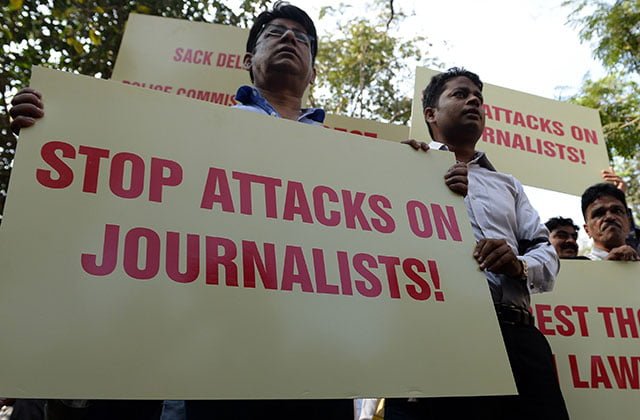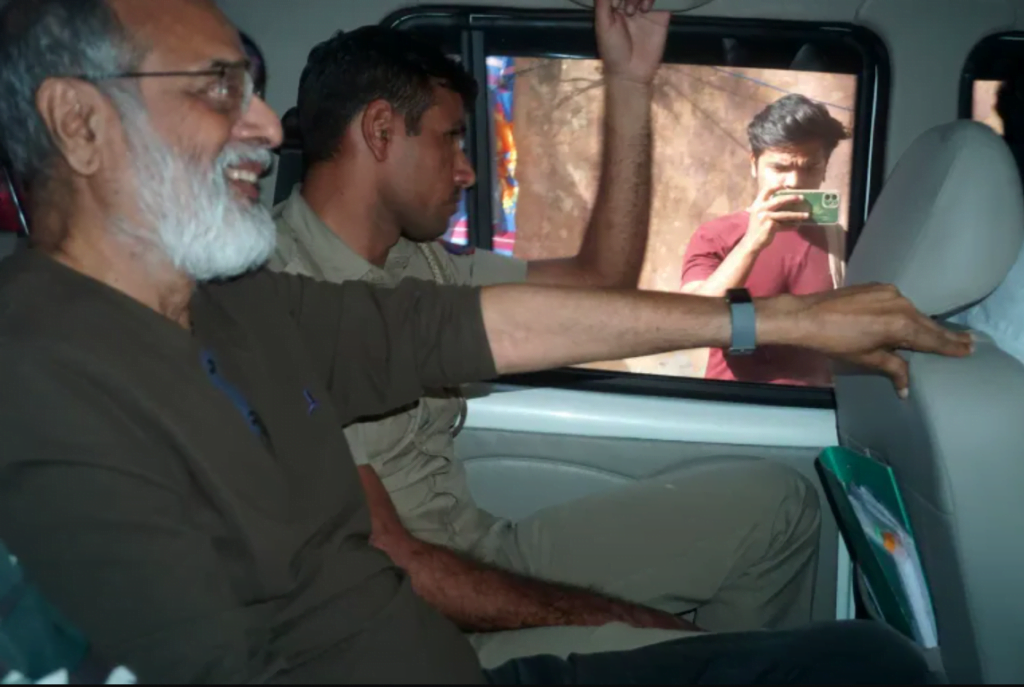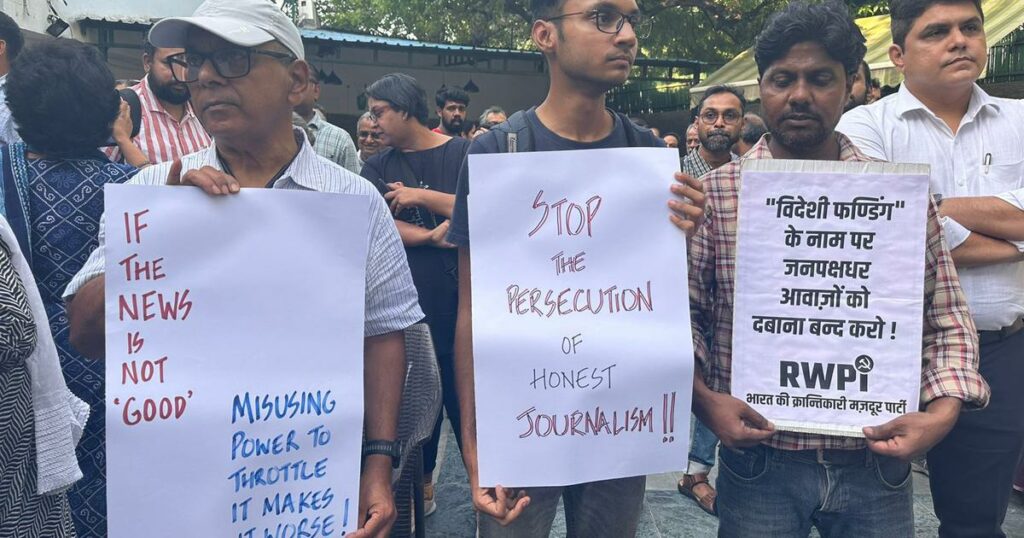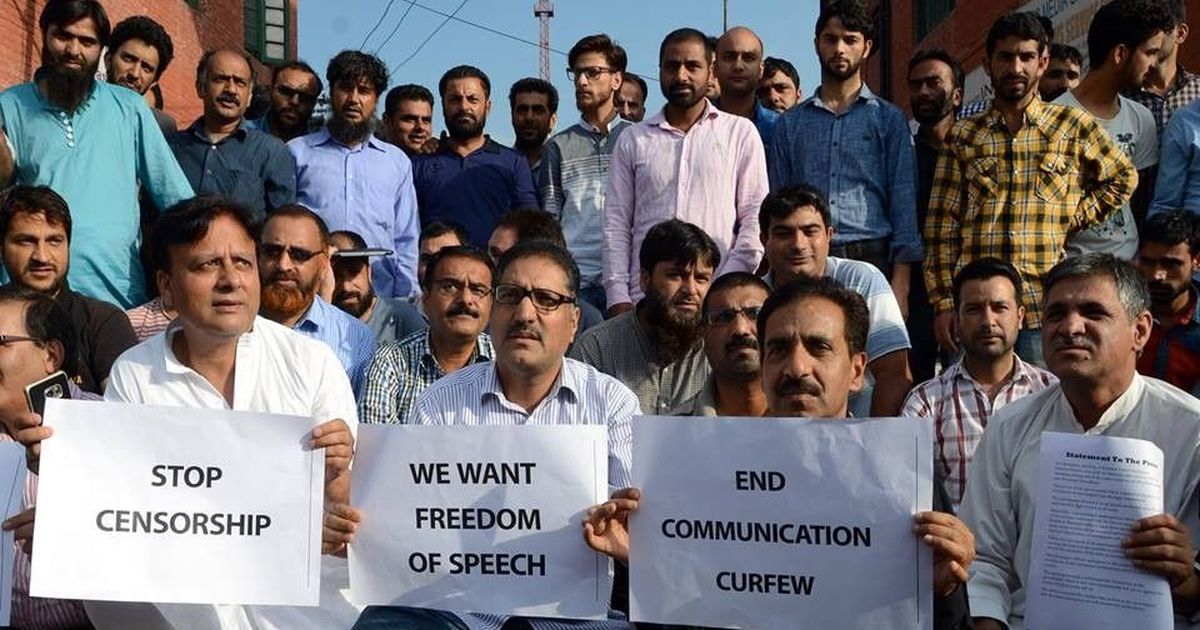In the past 10 years, under the tenure of the Bhartiya Janta Party, a lot has changed in the nation. The cultural and social milieu of India has undergone a sea change- affecting the very core of our nation’s constitutional framework. While we move towards becoming a communal and fascist dystopia from a secular, socialist and democratic republic, the ruins of the great Indian dream are scattered all around us.
One of the most important elements of our national identity, otherwise known as the fourth pillar of democracy is our press, which was always critical of political policies, decisions and parties and mostly always independent and non-partisan. From Kesari to Amrita Bazar Patrika, journalism and the press have played a key role in our historic struggle for independence.
In our democracy which is the largest in the world, the free press is instrumental in seeking out the truth, by being critical of institutions and making everyone aware of national and international politics.
However, in the last 10 years of BJP’s political regime, India has helplessly witnessed the slow yet sure death of the free press we used to pride ourselves on. From an alarming downward slide in global press freedom indices to the weaponisation of sedition laws against journalists critical of power, especially those hailing from minority communities, the independent Indian press has been time and again bullied into silence or servitude.
As we prepare as a nation for yet another Lok Sabha election this year, it is imperative to take a good look at the conscious, state-sanctioned destruction of independent media in our country, lest we further repeat historical mistakes.
The DPDP Act and the war on the journalism
In August 2023, the Indian Parliament passed the Digital Personal Data Protection Act. The first cross-sectoral law on personal data protection in India, DPDPA has been enacted after more than five years of deliberation. As per a written representation submitted to the Ministry of Electronics & Information Technology (MeitY) by the Editors Guild of India (EGI), it is clear that the DPDPA is highly detrimental to journalistic freedom and liberties. The clauses in the DPDPA ensure that independent, investigative journalism becomes impossible in India.
As a nation where corruption is rampant and enabled by powerful political entities, who make sure that state-bought media never expose such scandals or frauds, independent media plays a crucial role in uncovering the truth through sting operations and investigative journalism. The DPDPA makes it almost impossible for the press to carry out such investigations, thereby ensuring that corruption in India goes unchecked.
What does the World Press Freedom Index have to say?
As per the 2023 World Press Freedom Index, a report by the international media watchdog, Reporters Without Borders (RSF), India has ranked 161 out of 180 countries, demonstrating a drastic slip of 8 percent as opposed to around 2-3 percent every year since 2017. This alarming dip showcases the abject deterioration of press freedom in our democracy, pointing towards the uncertain and scary future of independent journalism in a nation slowly crawling towards fascism.

The ruling government has used two distinct methods to stifle dissent and criticism from the media in India. Applying Antonio Gramsci’s theory of political hegemony in the case of BJP-ruled India and the press, it is clear that the dominant dispensation led by the Hindutva right culturally and the BJP politically, has either silenced or co-opted the media in India. The integrity of several news outlets as well as media personalities has been bought by the ruling power and has been transformed and reduced to what veteran journalist Ravish Kumar calls “godi media” or state lackeys who wax lyrical about the greatness of the ruling dispensation and spew hate against those the government despises.
The other method by which the ruling dispensation has destroyed the media is by silencing independent and dissenting voices and erasing their narratives. This has been mainly carried out by slapping sedition charges under the UAPA on journalists, especially those from marginalised communities and those hailing from Kashmir, or by orchestrating unwarranted raids in the offices of prominent national and international media houses and human rights organisations.
The raids in the offices of the BBC and Amnesty International in India are a testament to this very project which aims to silence critical media in India.
Raids, sedition charges and violence: what it means to be a journalist today
Last year in October, the Delhi Police registered a case against independent news outlet NewsClick, and the Founder and Editor-in-Chief of NewsClick Prabir Purkayastha, alleging Chinese funding. A UAPA case was slapped on the news outlet, leading to furore from journalists, international press freedom organisations and the Press Club of India.

However, of late, such crackdown on press freedom is commonplace. In the past few years, several independent Kashmiri journalists, from Fahad Shah of The Kashmir Walla to the founding editor of Wande Magazine, Irfan Mehraj, have been arrested under the UAPA and consciously denied or delayed bail. Kashmiri journalists remain a primary target in the Hindutva project of ‘Akhand Bharat,’ where not only the nation but also national sentiments must be undivided and unanimous, thereby destroying all diversity and debate, which are essential to the health and vitality of a democracy.
Not only have independent journalists and media outlets faced judicial obstacles in their quest to save press freedom, but they have also fallen prey to extrajudicial violence both in physical and virtual spheres. Take for instance, the case of eminent journalist Gauri Lankesh, who was murdered by Hindutva miscreants near her residence in 2017.

Apart from the omnipresent threat of murder, sexual violence and physical harm looming over such journalists, they are also victims of cyber violence like online trolling, threats, doxxing etc. Female journalists from marginalised communities like Rana Ayyub, who are vocal against the misuse of power by the current government, are especially vulnerable to such violence. Ayyub’s social media posts where she shares that she receives rape and death threats on a daily, apart from misogynistic and Islamophobic insults, show the precarity of female journalists in “new India.”
Nothing but the truth shall set ‘journalism‘ free
However, to assume that the courageous keepers of our democracy, our independent journalists and media, have unquestioningly bowed down to this tyranny and accepted defeat, is wrong. The few remaining independent media houses and journalists stand tall and refuse to succumb to pressure from powerful forces. With staunch faith in the axiom that ‘the truth shall set you free,’ they are battling to keep democracy alive.
While recounting the bravery of such journalists, it is imperative to mention the Delhi-based media house, The Caravan Magazine, which, despite receiving judicial warnings from the Information and Broadcasting Ministry urging them to take down their report on the Indian Army’s torture and murder of civilians in Jammu and Kashmir, refused to bow down to pressure and firmly stood by the truth. Such examples of pure journalistic integrity reinstate our faith in the power of the press and instil hope in the hearts of Indians who refuse to be complicit in the crimes of their government.
About the author(s)
Ananya Ray has completed her Masters in English from Jadavpur University, Kolkata, India. A published poet, intersectional activist and academic author, she has a keen interest in gender, politics and Postcolonialism.






